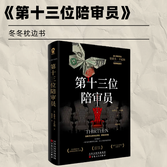近日,话题“原来这就是聊缩力”登上了小红书热搜榜首。
有不少网友分享了自己和别人“聊缩力”爆表的对话:
来源:小红书@搞笑的小土豆
有网友恍然大悟,原来这叫“聊缩力”啊,我还以为我事事有回应呢......
那么,究竟什么是“聊缩力”呢?
“聊缩力”是一个新兴的网络流行语。
它指的是在聊天中,使对话变得无趣、枯燥或令人反感的能力。
"Chat-deflation mojo", an online buzzword, refers to one's ability to consistently turn a conversation dull, unappealing, or downright repugnant.
具体来说,“聊缩力”表现为无效回复、人机回复、重复问题、只发表情包、爹味说教等行为。
那么我们要如何用英文形容具有“聊缩力”的人呢?
❶conversation killer
在看到“聊缩力”时,你有没有想到一个熟悉的名词——“话题终结者”?
“话题终结者”也能够迅速使对话或聊天氛围变得尴尬或无趣,以至于谈话无法继续。
Oh! Come on, he is a conversation killer! 得了吧,他就是个话题终结者!
❷wet blanket
“Wet blanket”是一个英语俚语,用来形容那些在社交场合中通过消极态度或行为使他人扫兴的人。
“Wet blanket”字面意思看起来是用湿毯子扑灭火焰,因此用于比喻在社交场合中,某人的行为就像湿毯子一样,能够迅速扑灭或抑制群体的热情或乐趣。
Don't be a wet blanket! come on, let's enjoy the fireworks display! 不要扫兴了!来吧,我们来欣赏烟花表演!
哪些语气词有“聊缩力”?
大家在聊天中常用的一些语气词,哪些在你看来是有“聊缩力”的呢?
嗯嗯
如果一个“嗯”显得太冷漠,那么就多加一个“嗯”吧。
哈哈哈哈哈
如果“哈哈”显得不够真诚,那就打一串的“哈”吧。
呵呵
据说是最惹人烦的语气词,但也可能是暴露年龄的语气词。
陈述句、祈使句后加一个“哈”,显得不那么强势,“明天交稿哈”。
想增加自身可爱度的人士常使用,“萌萌哒”“棒棒哒”……
能让你的语气瞬间软萌下来,“是的呢”“好的呢”……
其实,语气词作为缓解语气、让聊天不那么生硬尴尬的调和剂,还是挺有用的。
英文中也有不少有趣的语气词和感叹词(interjection),顺便学起来吧!
Ahem
/əˈ
hem/
Ahem是人在清嗓子时候发出的声音,在对话中通常表示委婉、尴尬或者讽刺意味,同时也用来引起对方注意。
The sound made when a person clears his/her throat, often interjected when speaking or writing to indicate that the next word or phrase is used ironically or euphemistically.
I love my job, ahem. 我热爱我的工作,呃。
Aww
/ô/
Aww既可以表示萌化了,也可以表示心疼、爱怜,一般出现在看到可爱、甜美、感人的事物时。w的个数越多,说话人的情绪越强烈。
An expression of endearment, or when you feel like something is cute/sweet/touching.
Awwww, that puppy is so cute! Awwww,小狗狗太可爱了!
Blah
/blɑː/
Blah表示废话、空话。如果觉得厌烦,不想重复别人说过的话,可以用blah来代替。
People say blah, blah, blah, when they do not want to give the exact words that somebody has said or written because they think they are not important or are boring.
Nobody is going to pay attention to the meeting because it's the same old blah blah blah. 没有人会认真听会的,因为一直就是那老一套。
Bravo
/ˌbrɑːˈvoʊ/
用来表示赞赏、喝彩。
Used to praise someone.
You won the race! Bravo! 你赢了比赛!太厉害了!
Boo
/buː/
Boo表示喝倒彩,观众对演员、讲话人等表示不满。
A sound that people make to show that they do not like an actor, speaker, etc.
Jeez
/dʒiːz/
类似中文的“哎呀,天呐”,表示愤怒、惊讶等情绪,gee也可以表达这个意思。
Used to express anger, surprise, etc.
Jeez, I wish they'd tell us what the hell is going on. 天呐,我真希望他们告诉我们到底发生了什么。
Nah
/nä/
和no一个意思,都表示否定,但发音更为随意,在轻松的语境中更常出现。
Variant spelling of no, representing a dialect or nonstandard pronunciation.
Want a lift? 要我载你一程吗? Nah, that's ok. 不用啦,我自己可以。
Duh
/dʌ/
Duh有两种含义,第一种是对他人的无知和愚蠢表示轻蔑,第二种是当别人指出不言而喻的事情,或者提出答案明显的问题时,作出的讽刺回答,意思是“这还用说/问?”
1. Used to signify a lack of knowledge or comprehension; 2. Used in response to something said that is too obvious or self-evident.
How did you get in here? 你是怎么进来的? Through the door, duh. 当然是从门口进来的啊,duh。
Ew
/ˈiːuː/
表示被恶心到。
An expression of disgust.
Eww — these socks smell! 呃,袜子也太臭了!
Meh
/me/
表示听者对讲话人的内容或者某项提议毫无兴趣。
Expressing a lack of interest or enthusiasm.
Meh. I'm not impressed so far. Meh,到现在为止我没觉得有什么了不起的。
Ooh la la
/u: la ˈla/
这个语气词来自法语,注意重音在第三个音节。
A lightly comical way to refer to something as fancy or special. 说到某些精美别致的事物时,一种略显夸张滑稽的说法。
Ooh la la, look at that dress! 哦哟哟, 你瞧那条裙子!
Oops
/ʊps/
哎哟,某人摔倒或出了点小差错时的用语。
Used when somebody has almost had an accident, broken sth, etc.
Oops! I almost spilled the wine. 哎哟!我差点把酒洒了。
Pff
/f/
表示恼怒、失望或者对荒谬言辞的轻蔑。
An expression of annoyance or disappointment. A dismissive response to a ridiculous comment.
Phew
/fjuː/
既可以表示热、累,也可以表示因为某件坏事已经结束或者没有发生而庆幸。
A sound that people make to show that they are hot, tired, or happy that sth bad has finished or did not happen.
Phew, I'm glad that's all over. Phew,这档事总算结束了!
Psst
/pst/
一种轻声引人注意的声音。
The sound people make when they want to attract somebody's attention quietly.
Shh
/ʃ/
用来提醒别人小点声,和中文的“嘘”一个意思。
You can say "Shh!" to tell someone to be quiet.
Shh, don't wake Sophia. 嘘,别吵醒Sophia。
Ta-da
/täˈdä/
在亮相或即将展示某物时,为了引人注目而发出的声音。
Used typically to call attention to an impressive entrance or a dramatic announcement.
Ta-da! I spent about 15 hours making this dress with the help of my mom. Ta-da!我花了差不多十五个小时,还有妈妈的帮忙,这条裙子完工啦!
Whoa
/wəʊ/
表示惊讶和惊奇。
Can show surprise or amazement.
Whoa, that's expensive! 哇,可真贵啊!
Yay
/jeɪ/
因高兴而发出的欢呼声,注意不要和yeah混淆,yeah是yes的变体,表示肯定。
A congratulatory exclamation. (Not to be confused with yeah, a variant of yes.)
Yay I have new clothes to wear! Yay,我有新衣服穿了!
Yowza
/ˈyauzə/
用来表示肯定、激动,或者热情的情绪。
Used to express approval, excitement, or enthusiasm.
Yowza, that is a beautiful gown! 哟呵,这礼服真美啊。
Yuck
/jʌk/
表示憎恶、讨厌。
Used to show that you think sth is disgusting or unpleasant.
Yuck. The carrots taste awful and salty. Yuck,这胡萝卜又咸又难吃。
这些语气词学会了吗?最后,祝各位在聊天时都能有满满的“聊张力”!
编辑:左卓
部分来源:外研社

































热门跟贴